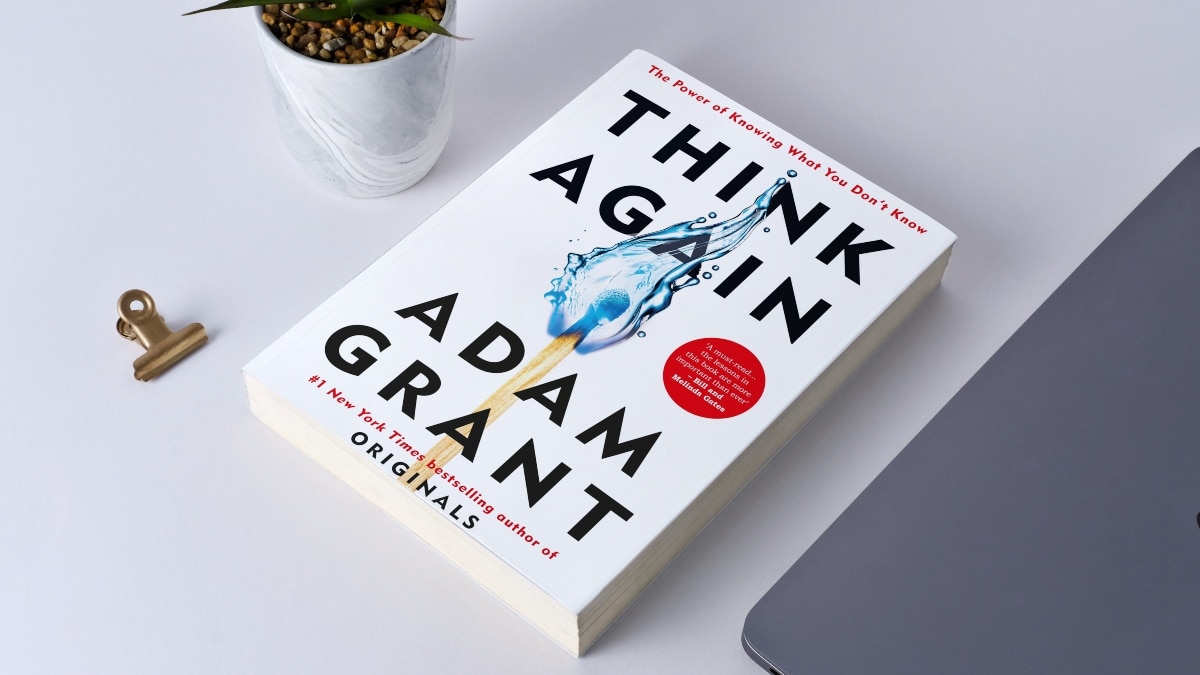Sometimes the biggest mistake we can make as business owners and managers is to stick to a decision too forcefully.
We seek and will only see evidence that confirms our position (confirmation bias), often favouring dubious sources over more thorough studies. A quote that resonates with me in this regard is to “have strong opinions, weakly held”. This means we can be decisive but also flexible when evidence and influences emerge that indicate we should think again, and change tack. Often managerial ego is so strong that managers will stick to a decision so firmly that it has a negative effect. Decision-makers need to have the ability to de-escalate a course of action driven by their own, or their teams, the decision when evidence and expertise reveals an alternative would be better.
Think Again, by organisational psychologist Adam Grant, is a book that makes the argument that in order to progress we need to become less certain. It’s OK to be wrong. Managers need to face up to this, embrace it, and use it to their advantage towards business, political, sporting, or individual success. Doing so attracts respect, encourages teamwork, and sets a positive example. The ability to rethink an issue contributes to lifelong learning and is a sign of a growth mindset. These are just some of the lessons from the book.
“Thinking again can help you generate new solutions to old problems and revisit old solutions to new problems. It’s a path to learning more from the people around you and living with fewer regrets.”
The book is in three parts, the first is about opening our minds to alternative possibilities. The second looks at methods we can use to persuade others. The third looks at creating communities or organisations of lifelong learners. Grant begins by identifying the three “professional” mindsets we adopt in decision making, justification, and debate: preachers, prosecutors, and politicians. The preacher emerges when our ideas are threatened and we react to defend and evangelise our beliefs. The prosecutor comes into play when we identify faults in the thinking of others and use them to justify our own case at the expense of others. The politician seeks to be liked and to seek approval from others. Grant warns us that we are too invested in being right, finding fault in others, and seeking affirmation.
To combat our affirmation tendencies, Grant encourages business leaders to think like scientists: test their own theories, run alternative scenarios, be proactively curious. This is also explored in more detail in Ozan Varol’s Think Like a Rocket Science which we have previously reviewed. The rate of change and the deluge of information flow that is around us compels us to learn how to integrate new learnings into our belief systems and strategies. This requires business leaders need to practice humility in order to open themselves to new learning and growing competence.
In regard to challenging others, Grant carries the scientist techniques. Demonstrate how a set of beliefs are a product of chance, have fewer arguments by acknowledging a broad range of possibilities rather than black or white, and ask motivational questions. Organisationally, Grant suggests we create a culture of learning, and the freedom and safety to make mistakes and learn from them.
One of the key takeaways for me was the idea of surrounding oneself regularly with people who will challenge your ideas and opinions, rather than support them. A challenge circle structured in a positive way to help grow an idea, encourage progress, and improve the end result of an idea, innovation, or invention.
Underpinning the principles throughout Think Again is the importance of seeing ourselves, our identity, based on our values rather than our beliefs. If we approve problems and decisions from a values perspective we are more likely to see those values upheld rather than having an opinion confirmed in spite of contrary evidence. Values are a more powerful driver and receptor, and to rethink, retest, reconsider our beliefs based on our values can lead us to make stronger decisions with fewer regrets. This is the challenge that Think Again presents. We need to understand why we believe what we do.
Overall thoughts
Think Again by Adam Grant may be challenging for some, but it contains plenty of compelling examples on the benefit of an open mind to ongoing learning. It offers skills that can be learned, and techniques we can use in everyday management and business negotiations, as well as in the home and among our ever-widening social groups. Like his previous works, Grant has shown us that what we think, is only the starting point, and things may not be what they seem.




